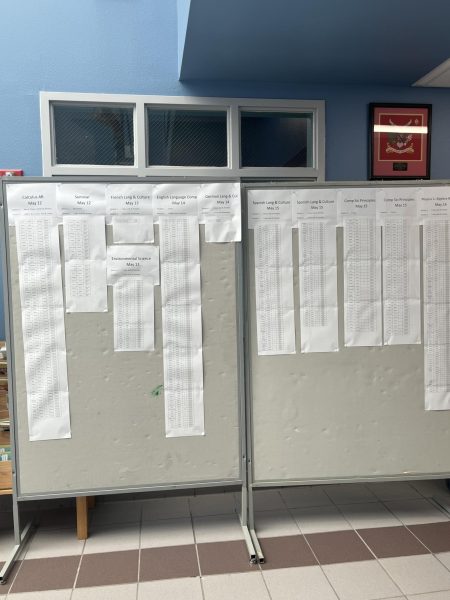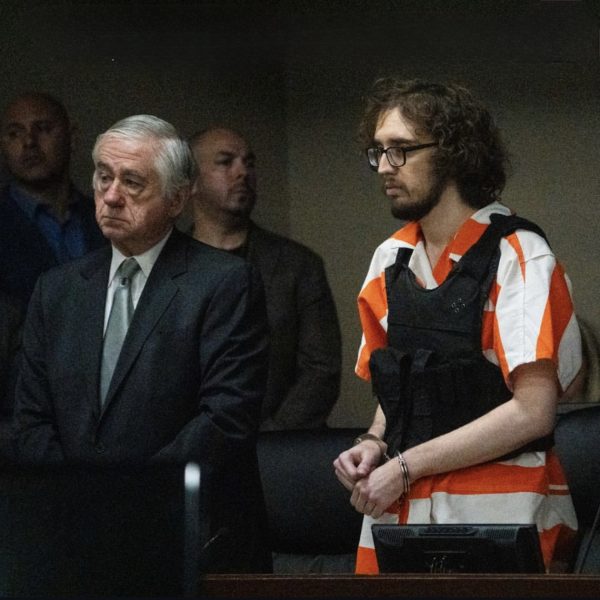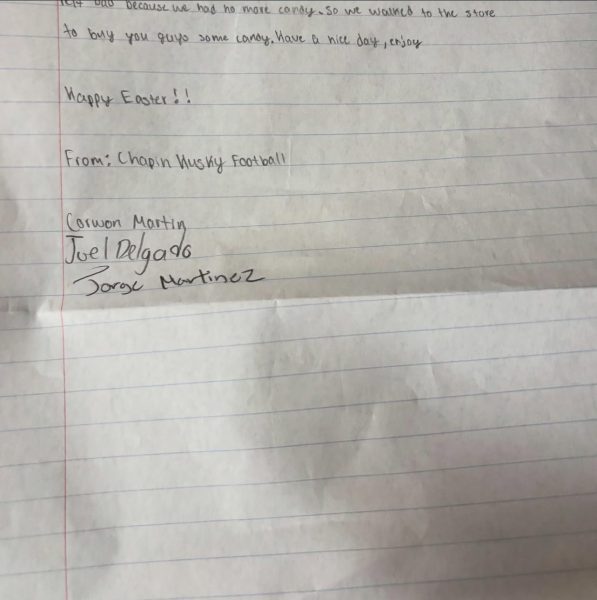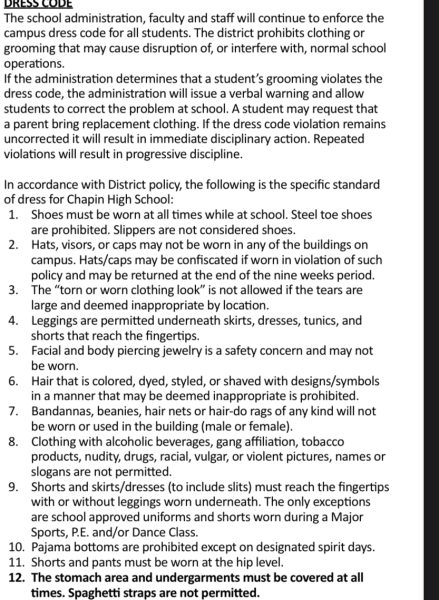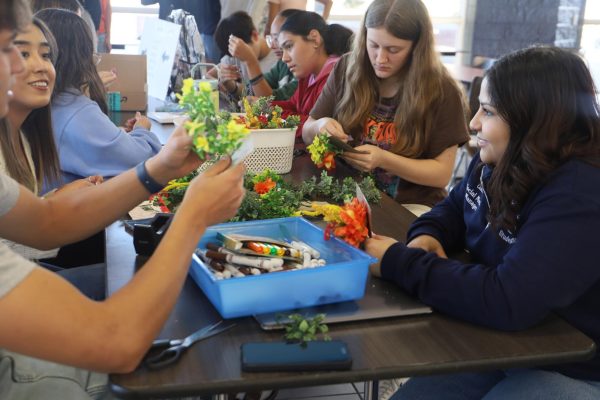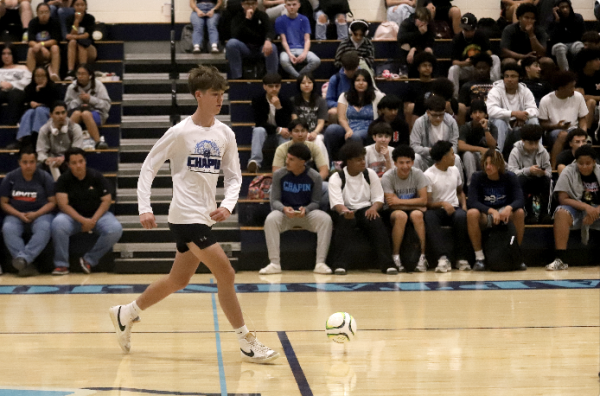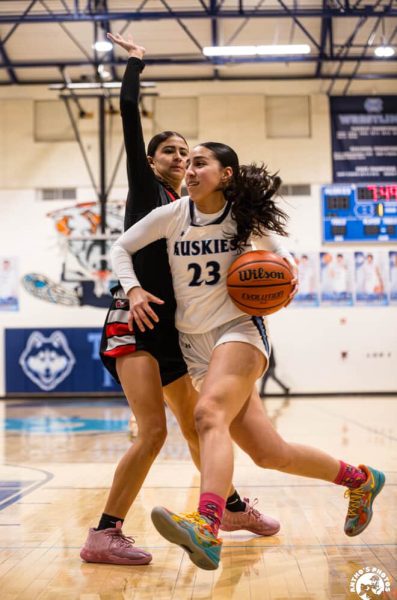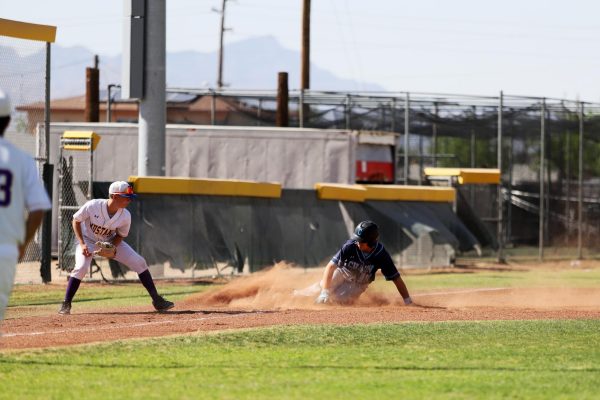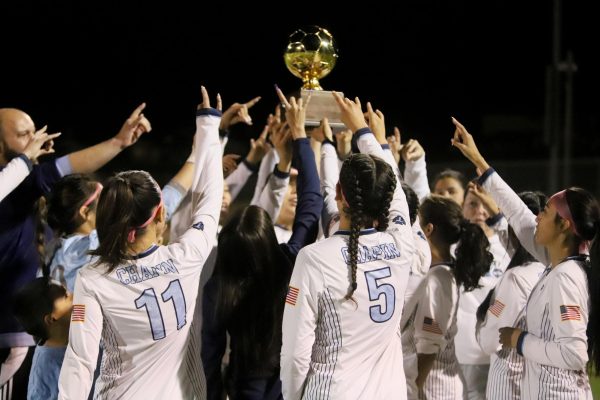Kansas City Chiefs face controversy over name
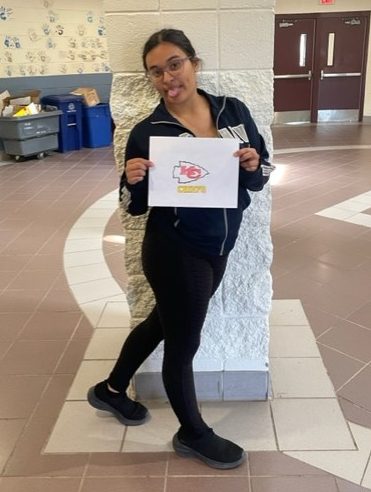
Freshman Melissa Moreno stands with a Kansas City Chiefs logo.
The Kansas City Chiefs won their second Superbowl Championship last Sunday against the Philadelphia Eagles. The final score was 38-35. They won with a three-point field goal.
The Kansas City football team wasn’t originally called the Chiefs, they were called the Dallas Texans, but they changed their name when they moved to Kansas City in 1963. For years there has been some controversy about the Chiefs mascot. The first sign of controversy for the Kansas City Chiefs started in 2013 when fans went to the game wearing feathers and warpaint and doing the tomahawk chop. In 1989 the Chiefs changed their mascot from Warpaint to the KC Wolf.
“I do, well I guess it’s not my place to say because you know I’m not a native American descendant,” sophomore Nicholas Galindo said. “I’d feel some type of way if I was and my culture is being used as a mascot or as a name.”
The Kansas City Chiefs was the last professional sports team in the United States to adopt a name or a logo referencing Native Americans, although indirectly. After the Chiefs appearance in the Kansas City Star of photographs in 2013 when fans came to the Chiefs game in 2013 wearing feathers and warpaint one caller, who was especially upset that the photographs were published on Columbus Day, described the images as a “mockery” and “racist”.
“I feel like they’re not really obligated but at the same time there’s a community of people out there who take offense to it and I feel like it is a respect thing they wanted to respect the community,” senior Avery Hecker said.
After the Washington Redskins and Cleveland Indians announced in July 2020 the process of reviewing their names, the Chiefs did not respond to a request for comment. Native American advocates are calling for the ‘immediate retirement” of the team’s name. The Chiefs refuse to change their name because the name was chosen for the city’s white mayor at the time, Mayor Harold Roe Bartle, who allegedly received permission from the Northern Arapaho people. The name was based on a nickname of Bartle’s, which was reportedly” the chief.”
“I feel like if they’re going to change the mascot because people did find it offense then I agree with that,” head football Coach Ryan Wanner said. “At the end of the day the Kansas City Chiefs is a business.”
There has been renewed protest over the tea name itself, which is considered racist and appropriative. Even though the Native American think that the Chiefs should change their name the Chiefs president Mark Donovan recently claimed to the AP that the team “documented tribal officials confirming” permission to use what Indigenous activists have called a culturally appropriative team name.
“I do that it was necessary for them to change the mascot um because you know they try to make it a little less disrespectful and um if the people of that culture have no problem with it then I think it was necessary,” Nicholas said.
Even though the Chiefs changed their mascot and after the Native Americans told the Chiefs numerous times to change their name, they still refuse to change their name. Flowing the Native Americans demand for the Chiefs to change their name a group called the knot in our honor coalition has collected more than 14,000 signatures in order to get the Chiefs to change their name. A lot of Native Americans think that the Chiefs fans are being racist for doing the tomahawk chop at games.
“I think it was maybe a mockery you know having something that’s your culture just kinda displayed as like as a mascot it is really a special thing and it’s kinda mocking the community in some way,” Avery said.

